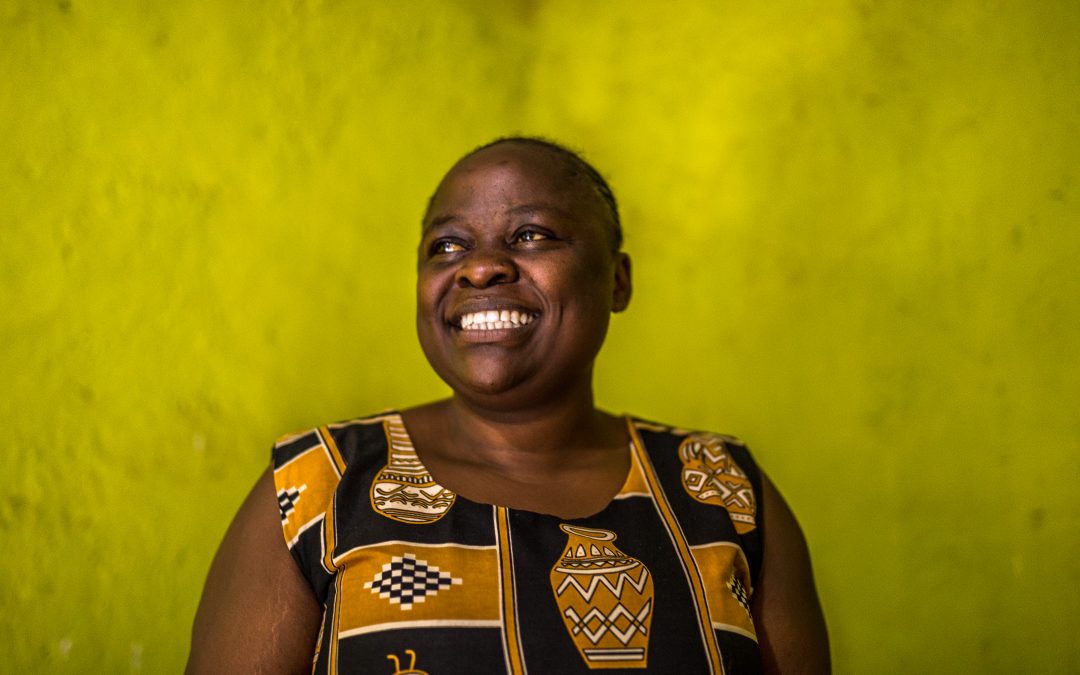As we co-launch The Fight for Sexual Self-Determination: The Next Round (Executive Summary) together with the Berlin Institute for Population and Development, we sat down with their Head of International Demography, Alisa Kaps to discuss the content of the report – looking back at the progress made on sexual self-determination, and the fight ahead to make it a reality for all.
Could you tell us a little bit about the progress that’s been made since the groundbreaking Cairo conference and its Programme of Action? What is still left to achieve?
Over the last 25 years, the international community has made progress in many areas that were highlighted in the Cairo Programme of Action as essential for development progress – including child and maternal health, education and gender equality. But we are still far away from reaching the goals that were agreed in 1994. Child mortality, for example, is still much higher in less developed countries than in developed ones. This is also the case for maternal mortality. The risk of dying during pregnancy or childbirth is about 36 times higher in sub-Saharan African countries than it is in North America and Europe. And access to modern methods of family planning remains a challenge in many countries, too. In fact, every year, in developing countries over 200 million women who would like to avoid pregnancy do not have access to modern methods of contraception. There is still a lot of work to be done to make the Cairo goals – and therefore sexual self-determination for all – a reality.
What in your opinion are the biggest challenges facing advocates seeking to progress sexual self-determination? Could you give some concrete examples?
Sexuality and reproduction have always been controversial issues because every society, religion, culture and every legal system has its own views on the concerns of human reproduction. Therefore, some religious and social groups, rulers and organisations have always opposed the Cairo Program of Action. A constant opponent, for example, is the Vatican, who rejects any form of modern family planning and who uses, for instance, its influence as an observer member at the United Nations to undermine progress towards sexual self-determination. Under President Trump, the United States are also a strong opponent. Since the so-called Mexico City Policy was reintroduced in 2017, a policy which denies international NGOs access to US development funds if they are in any way involved with abortion, funding problems have become a major issue for many organisations working in the field of health and sexual and reproductive health and rights (SRHR). Even in the European Union, which has always been a strong advocate of human rights and thus also of the right to sexual self-determination, opposition from ‘anti-choice’ movements and right-wing populist forces who want to protect the ‘traditional family’ is on the rise. So the headwinds that advocates for SRHR have to face are currently increasing, and from different directions.
What advice do you have for countering opposition to sexual and reproductive self-determination?
Advocates in favour of the commitments made in Cairo need to join forces worldwide to make sure that opponents don’t gain more influence and thereby block further progress or even dilute successes already achieved in the areas of SRHR. The coalition of international institutions, civil society organisations and governments advocating for SRHR on the international stage needs to be deepened. They not only have to make sure that existing initiatives and programmes working for improving access to education, health and family planning or for improvements in gender equality receive continued support, it is also important to highlight the positive effects of sexual self-determination. Only if everyone gets the chance to autonomously decide about their own family and their own lives, will further development progress and the achievement of the SDGs be possible. This message needs to be spread to get more support for SRHR and to counter the opponents.

Alisa Kaps is the Head of International Demography at the Berlin Institue for Population and Development. She is one of the co-authors of the full report, A contested issue: The rise in international opposition to the right to sexual self-determination.
